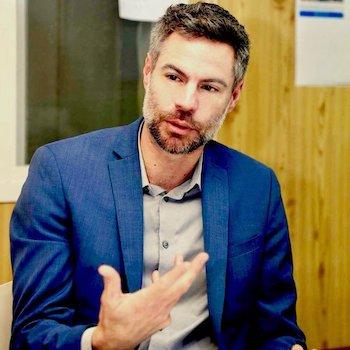Several years ago, I received an invitation to attend a conference hosted by the Breakthrough Institute, an organization that promotes technological solutions to problems like climate change.
I'm glad I went, not just because they paid for my trip to a luxurious resort by the Golden Gate Bridge in Sausalito. For the first time ever, I met environmentalists that I actually agreed with. The group has a generally optimistic view of our life on this planet, and while it believes climate change is a serious issue that needs to be addressed, it also believes that we can fix it using technology. Hence, they refer to themselves as ecomodernists, and I proudly apply that label to myself.
Most importantly, Breakthrough views environmental issues through a humanitarian lens; that is, the group believes that a prosperous planet first and foremost needs prosperous people. Encouragingly, the conference was attended by some of the brightest minds from across the ideological spectrum, and I was grateful to be invited several years in a row.
One of the founders of the Breakthrough Institute is Michael Shellenberger, an intellectual heavyweight who has been an environmental activist for 30 years and will serve as a reviewer on the UN's next major climate report. He just wrote a new book called Apocalypse Never that debunks several myths about climate change. An article posted on the website of his new organization, Environmental Progress, provides a good summary. It also apologizes for climate fearmongering, and it provides a list of facts that contradict the prominent media narrative, which we reprint here:
Humans are not causing a “sixth mass extinction”
The Amazon is not “the lungs of the world”
Climate change is not making natural disasters worse
Fires have declined 25% around the world since 2003
The amount of land we use for meat — humankind’s biggest use of land — has declined by an area nearly as large as Alaska
The build-up of wood fuel and more houses near forests, not climate change, explain why there are more, and more dangerous, fires in Australia and California
Carbon emissions are declining in most rich nations and have been declining in Britain, Germany, and France since the mid-1970s
Netherlands became rich not poor while adapting to life below sea level
We produce 25% more food than we need and food surpluses will continue to rise as the world gets hotter
Habitat loss and the direct killing of wild animals are bigger threats to species than climate change
Wood fuel is far worse for people and wildlife than fossil fuels
Preventing future pandemics requires more not less “industrial” agriculture
I cannot independently verify each of those claims, but I trust that Mr. Shellenberger has made them in good faith based on his best understanding of the evidence. Yet, anything that goes against the "we're all going to die" narrative is automatically controversial. It's so controversial, in fact, that one journalist called Mr. Shellenberger a white supremacist and Forbes censored the article, where it was originally published.
The Smearing of Michael Shellenberger
Why Forbes deleted the article is anybody's guess. Mr. Shellenberger claims it was censorship. The Guardian says the article violated Forbes's policy on self-promotion. (This is risible; the entire point of having a Forbes blog is self-promotion.) Canada's National Post couldn't get an answer from Forbes. One is forced to conclude that Forbes received backlash and caved to the pressure.
But this pales in comparison to the bizarre ad hominem attack to which he was subjected. Eric Holthaus, an allegedly reputable journalist who identifies as an "ecosocialist," called Mr. Shellenberger a climate delayer (whatever that is) and a white supremacist.

What does climate change have to do with white supremacy? Well, nothing, unless you subscribe to critical race theory, which has at its core the belief that all of society -- from the economy to our culture -- is fundamentally racist and irredeemably broken. According to the theory, which has its roots in Marxism, every member of society is part of an oppression hierarchy. White males are at the top (and are the ultimate oppressors), and everybody else exists below them (the oppressed). Are you a poor, white male living in rural West Virginia and addicted to opioids? Too bad. You're still an oppressor.
Based on their words and behavior, critical race theory's adherents appear to believe that the only way to fix societal injustice is to burn everything down and start over. Any disagreement with this all-encompassing worldview -- which includes radical action on climate change as a way to repent for the sins of white males since the beginning of time -- is, by definition, racist. Such a belief obviously makes dialogue impossible, but it's increasingly common on college campuses and in the media.
The First Amendment Is on Life Support
I have a job that depends on exercising my First Amendment right to free speech, which is why I get very angry over incidents like this. While it's true that Mr. Shellenberger's right to free speech wasn't curbed by the government -- and therefore no technical violation of the First Amendment occurred -- the spirit of the First Amendment has been violated. With the advent of "cancel culture," this is happening more and more and more often.
Voltaire is dubiously credited with saying, "I disapprove of what you say, but I will defend to the death your right to say it." That sentiment, which forms the entire basis of the First Amendment, is gone from America. A whopping 62% of Americans are afraid to share some of their political views because somebody might be offended. As we all know now, if you offend somebody, you can lose your job and have your life destroyed.
No law can fix this. Only a change of heart can.




